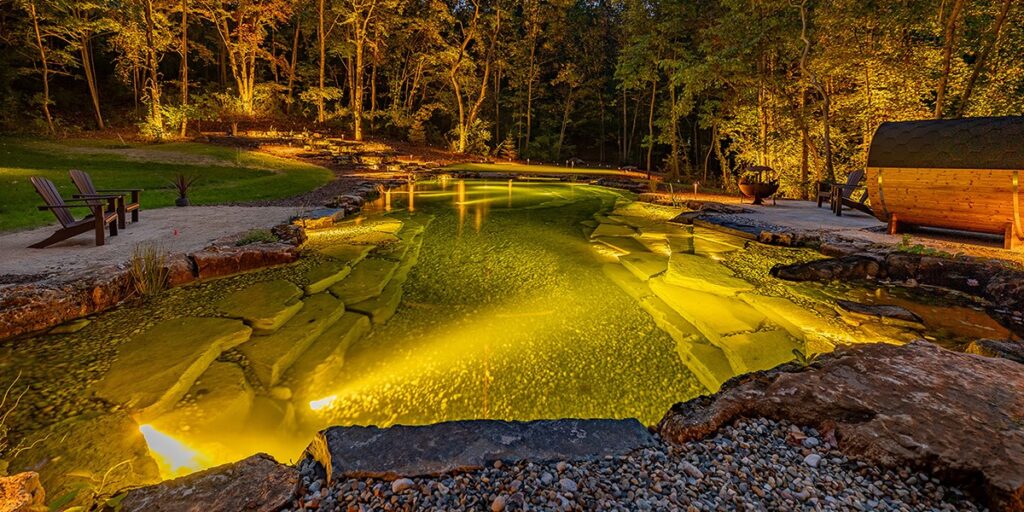
Regardless of when you plan, the goal with any planning is to keep the tax bill at a legal minimum, year after year. So, keeping in mind that a garden pond professional’s obligation is to pay their fair share of taxes — and not a dollar more — consider a few last-minute tax-savings tips, such as those for treating the costs of equipment and new technology that play such an important role in every pond’s operation.
Don’t Overlook Depreciation
Depreciation is the income tax deduction that allows a business to recover the cost or other basis of all equipment or other property. It is an annual allowance for the wear and tear, deterioration or obsolescence of buildings, vehicles, furniture and equipment. Also depreciable is intangible property, such as patents, copyrights and computer software.
The extenders bill passed in 2015 permanently set the Section 179, first-year expensing write-off at $500,000 with a $2 million overall investment limit before phase-out. While the dollar amount of asset purchases remains the same thanks to the inflation adjustment, the investment limit for 2016 increased to $2,010,000 before phase-out begins.
That extenders bill also extended the 50-percent “bonus” depreciation write-off for equipment placed in service between 2015 and 2017, with lower percentages kicking in for an additional two years. That means a write-off of 50 percent of the purchase price in the first year, plus the regular depreciation rate on the remaining 50 percent.
Although depreciation can only be claimed for assets placed in service prior to the end of the tax year, claiming or ignoring depreciation write-offs should be given some thought. For instance, while taking the bonus depreciation write-off is the rule, a pond professional can elect out for all property within a class. Thus, if the operation purchases five trucks (5-year property) and $65,000 in office furniture (7-year property), the choice can be made to not take bonus depreciation on the trucks or the furniture, or both. However, selecting which trucks to use the election on is a no-no.
The Correct Write-Off
While finding and documenting all business expenses is generally a big chore, keep in mind that records can often serve as reminders of some of the most lucrative small business tax deductions. The home-office deduction, for instance, requires compiling multiple expenses and calculating percentages, while the deduction for auto expenses requires extensive recordkeeping that should have begun at the beginning of the year. Other overlooked and frequently misunderstood deductions include the following:
Repairs. As a general rule, whenever possible, repairs and maintenance expenses should be deducted immediately rather than capitalized and depreciated. That said, the IRS has issued sweeping new repair regulations that govern how the cost of acquiring, repairing or improving business property should be accounted for. Several changes to these guidelines will further impact all garden pond retailers, installers, builders, distributors and manufacturers. Small businesses lacking so-called “applicable financial statements” (AFS) can take advantage of a new de minimis safe harbor by electing to deduct smaller purchases ($500 or less per purchase or per invoice). Businesses with AFS can deduct as much as $5,000 per purchase or invoice. Small businesses with gross receipts of $10 million or less can also take advantage of a safe harbor for repairs, maintenance and improvements to eligible buildings.Work Opportunity Tax Credit. Thanks to the tax extenders bill, the Work Opportunity Tax Credit has been extended through 2019 for employers hiring members of targeted groups. That same bill also added qualified long-term unemployment recipients to the roster of targeted groups effective Jan. 1, 2016.
Software. As a general rule, software bought for the business must be depreciated over a 36-month period, but there are some important exceptions. When, for instance, software comes with a computer and its cost is not separately stated, it’s treated as part of the hardware and depreciated over five years. However, under the Section 179 first-year expensing rules, the whole computer system cost, including bundled software, can be written off if it is within the Section 179 annual deduction limits.
Advertising & Promotion. The cost of advertising the pond business’s products or services — business cards, yellow page ads and so on — is deductible as a current expense. Promotional costs that create business goodwill such as sponsoring a peewee football team are also deductible, as long as there is a clear connection between the sponsorship and the business.
Overtime. Not strictly tax-related but effective Dec. 1, 2016, new rules raising the white-collar overtime exemption threshold under the Fair Labor Standards Act (FLSA) were released. The revised overtime pay regulations, which are estimated to affect at least 4.2 million American workers, increase the salary threshold for the overtime exemption from $455 a week ($23,600 annually) to $913 a week ($47,476 annually). As a result, many businesses must now track hours for salaried employees who are at or below the $47,476 threshold.
Keeping It Real
Over the years, the way the IRS views “reasonable compensation” has changed significantly. The IRS and the courts believe that to the extent owners perform services for their business, the business should pay the owner a reasonable salary as compensation for those services. In addition — crucially — reasonable salary is subject to self-employment tax.
Losses, and More Losses
Casualty and theft losses are deductible if they result from a sudden, unexpected and unusual cause. Of course, a tax deduction for a casualty loss is only allowed in the year of the loss, and no deduction can be taken if reimbursement is anticipated. When it comes to theft losses, a deduction can be taken only in the year the theft was discovered.
Frequently overlooked are the strict time limits for a garden pond professional to claim a Net Operating Loss (NOL) carryback or to forgo the carryback and just carry the loss forward.
The typical statute of limitations for filing a NOL tax refund claim is three years from the time the tax return was filed, or two years from the time the tax was paid, whichever period expires later. If overlooked, a special provision in the tax rules requires the claim for a refund to be filed within three years of the date on which the return was due to be filed, including extensions, for the taxable year of the net operating loss that results in such a carryback.
Often Overlooked Obligations
Don’t forget that state and local governments impose their own filing and payment responsibilities with various income, sales and property taxes. Recently, the states have become more aggressive in taxing corporations that are not physically present within their borders but have significant sales or perform services in their jurisdictions. While there may be exceptions for limited business activities in some states, it is wise to check on the activities of salespeople or workers that travel to different states, ensuring the operation is filing all required state tax returns — and personal.
Ignore for Savings
Just as all income should be reported to keep the tax folks at bay, all the pond operation’s expenses should be reported in order to keep the tax bill low. That is, the expenses should be taken unless the rules permit postponing them to a more profitable tax year.
Obviously, it is not easy trying to break a lifelong habit of minimizing income and maximizing deductions in order to produce a low tax bill. Surprisingly, however, the lowest tax bills often result from legitimate tax deductions postponed or ignored.
https://www.pondtrademag.com/self-guided-pond-tour-provides-low-maintenance-high-reward/
On the other hand, many ignore perfectly legitimate deductions because they believe the deduction increases the likelihood of an audit, or because the paperwork and recordkeeping aren’t worth the amount of the deduction. While keeping track of small items purchased for the pond business is often too time-consuming to be worth the trouble, for many expenses such as travel, entertainment and the like, remember that physical receipts are not required for amounts less than $75.
Extend the Pain, if Not the Payment
Anyone who has tried but can’t get their taxes prepared by the filing deadline can file a Form 4868, Application for Automatic Extension of Time To File U.S. Individual Income Tax Return, or use an online service. The IRS will automatically grant extensions of as much as six months to file taxes. Remember, however, the tax extension provides more time to file the business’s tax returns, but not more time to pay the tax bill (or a good estimate of the final tab).
Although taxes should never be the primary reason behind any strategy, purchase or move made by a pond professional, taking advantage of our tax rules is important. It is never too late to plan on saving taxes. In fact, any pond-related business owner who changes his or her mind after the return is filed can amend or change an already-filed tax return. But in order to achieve that low tax bill either before or after the return is prepared, professional assistance may be required.


